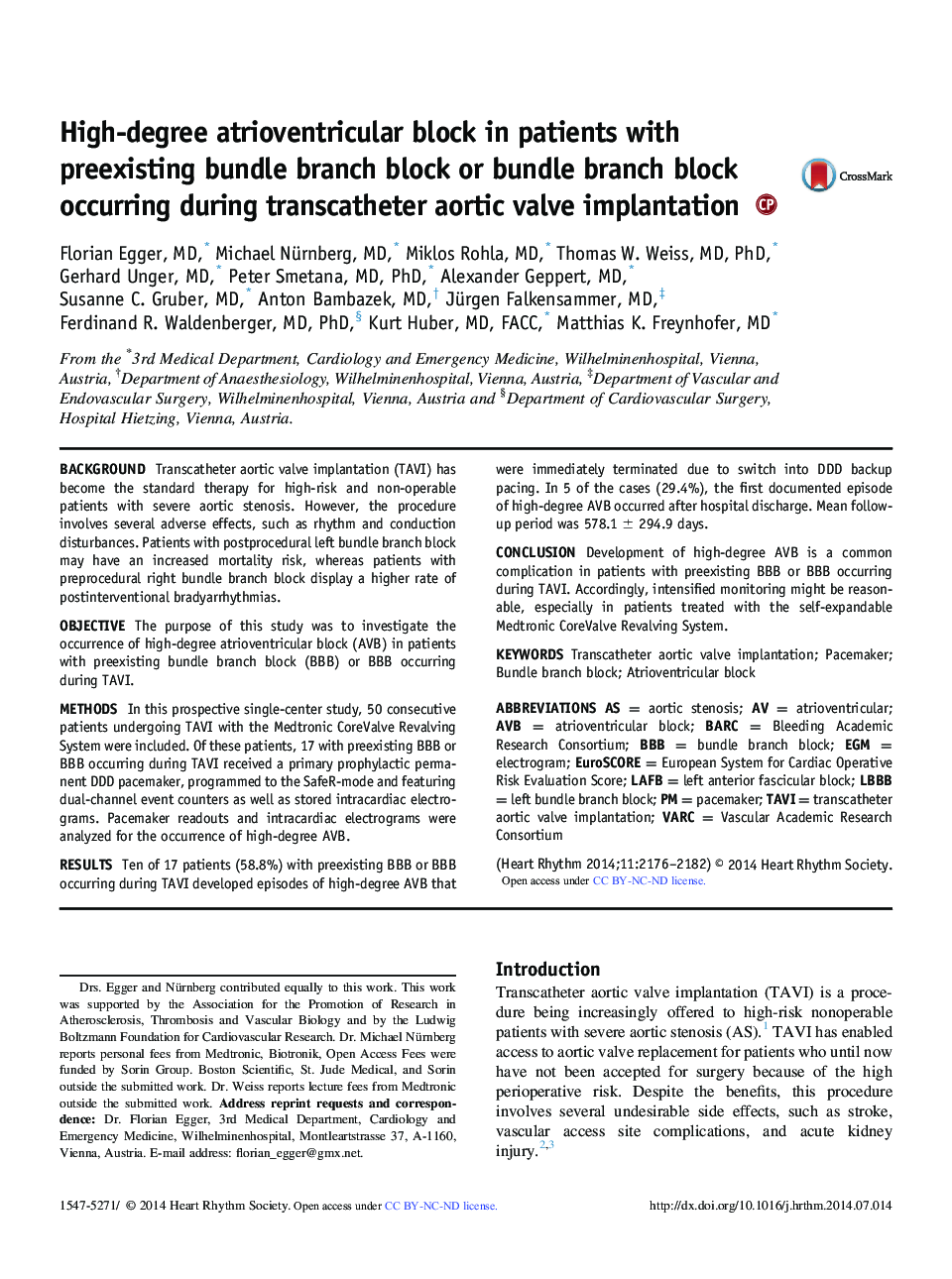| Article ID | Journal | Published Year | Pages | File Type |
|---|---|---|---|---|
| 5960322 | Heart Rhythm | 2014 | 7 Pages |
BackgroundTranscatheter aortic valve implantation (TAVI) has become the standard therapy for high-risk and non-operable patients with severe aortic stenosis. However, the procedure involves several adverse effects, such as rhythm and conduction disturbances. Patients with postprocedural left bundle branch block may have an increased mortality risk, whereas patients with preprocedural right bundle branch block display a higher rate of postinterventional bradyarrhythmias.ObjectiveThe purpose of this study was to investigate the occurrence of high-degree atrioventricular block (AVB) in patients with preexisting bundle branch block (BBB) or BBB occurring during TAVI.MethodsIn this prospective single-center study, 50 consecutive patients undergoing TAVI with the Medtronic CoreValve Revalving System were included. Of these patients, 17 with preexisting BBB or BBB occurring during TAVI received a primary prophylactic permanent DDD pacemaker, programmed to the SafeR-mode and featuring dual-channel event counters as well as stored intracardiac electrograms. Pacemaker readouts and intracardiac electrograms were analyzed for the occurrence of high-degree AVB.ResultsTen of 17 patients (58.8%) with preexisting BBB or BBB occurring during TAVI developed episodes of high-degree AVB that were immediately terminated due to switch into DDD backup pacing. In 5 of the cases (29.4%), the first documented episode of high-degree AVB occurred after hospital discharge. Mean follow-up period was 578.1 ± 294.9 days.ConclusionDevelopment of high-degree AVB is a common complication in patients with preexisting BBB or BBB occurring during TAVI. Accordingly, intensified monitoring might be reasonable, especially in patients treated with the self-expandable Medtronic CoreValve Revalving System.
